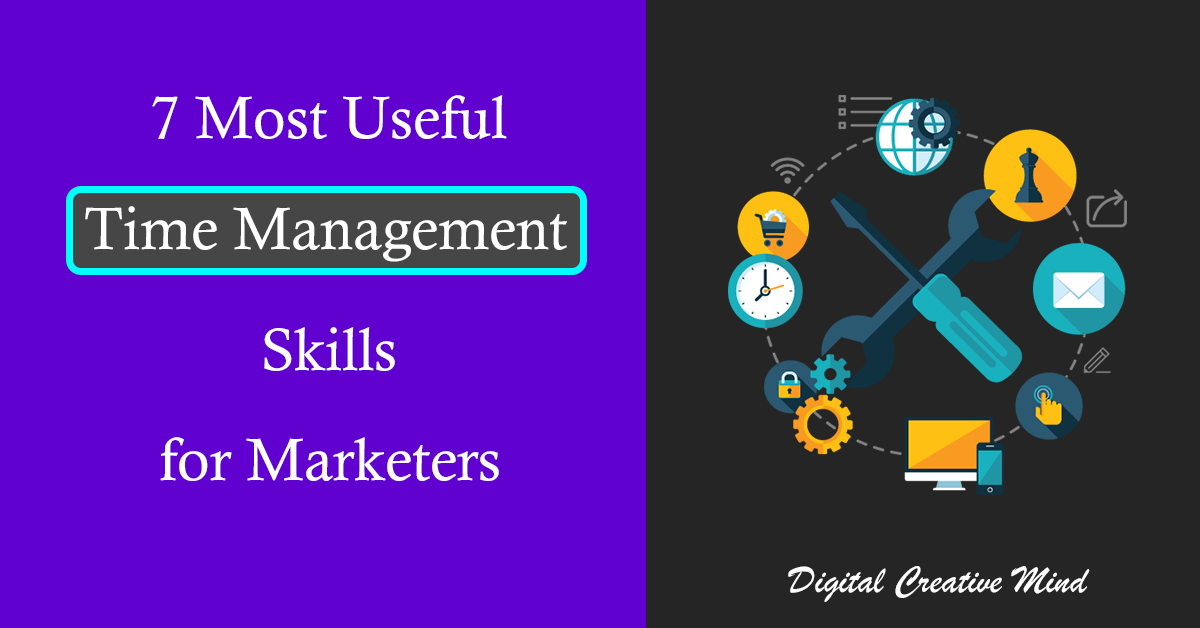
Hey there, fellow marketer!
Are you tired of feeling overwhelmed and stretched thin when it comes to managing your time effectively in the fast-paced world of marketing?
Do you find yourself constantly juggling tasks, struggling to meet deadlines, and feeling like there aren’t enough hours in the day?
Well, my friend, you’re in the right place.
In this article, I’m going to share game-changing strategies and insights on mastering marketing time management.
We’ll dive deep into prioritization, ways to maximize productivity, and uncover the secrets to maintaining a healthy work-life balance.
By reading this article, you’ll understand how to take control of your time and improve your marketing game. You’ll learn to manage your tasks efficiently and receive a positive response from your audience. Buckle up, grab a cup of coffee, and revolutionize your time management in marketing.
Overview
Time management in marketing is crucial for efficiency. Effective time management involves organizing and prioritizing tasks to meet deadlines and maximize productivity. It enables marketers to focus on high-priority activities, including creating compelling content, analyzing data, developing strategies, and implementing marketing campaigns.
An important aspect of time management in marketing is prioritization. Marketers need to determine which tasks are most important and allocate their time and resources accordingly. This involves assessing the urgency and importance of each task and making informed decisions about allocation.
Another key aspect of time management in marketing is planning. Marketers must create a clear plan to achieve their goals and objectives. This involves setting specific and measurable targets, breaking down tasks into manageable chunks, and creating a schedule or timeline to guide their work.
In addition to planning, marketers must be mindful of time wasters and distractions. This includes avoiding procrastination, limiting time spent on non-essential tasks, and minimizing interruptions. Strategies like time blocking, setting deadlines, and using productivity tools can help marketers stay focused and avoid wasting time.
Effective time management is crucial for marketers to optimize productivity, meet deadlines, and achieve their marketing objectives. It allows them to work efficiently, maximize resources, and drive marketing success. Prioritization, planning, and minimizing distractions are key strategies to improve time management skills and achieve optimal results in marketing activities.
What is marketing time management?
Marketing time management is the practice of allocating and utilizing time efficiently to achieve marketing goals. Time is valuable in marketing as it directly affects the success and productivity of marketing efforts. It involves planning, prioritizing, and organizing tasks to ensure that marketing activities are completed timely and effectively.
In marketing time management, marketers must identify their goals and create a plan to achieve them within the available time. This requires prioritizing tasks based on their importance and urgency and allocating time accordingly. By managing their time effectively, marketers can focus on important activities and avoid wasting time on low-value tasks.
A key aspect of marketing time management is tracking and monitoring the progress of marketing activities. This helps identify bottlenecks or issues that may cause delays or hinder goal achievement. Through regular review and analysis, marketers can make necessary adjustments and ensure optimal use of their time.
Benefits of Marketing Time Management:
1. Increased productivity: Marketing time management maximizes productivity by ensuring efficient allocation and utilization of time.
2. Improved focus and effectiveness: Prioritizing tasks and activities helps marketers focus on high-impact activities and achieve better results.
3. Reduced stress: Effective time management reduces stress by ensuring tasks are completed within deadlines and avoiding last-minute rushes.
4. Better decision-making: Clear understanding of time allocations and progress enables marketers to make informed decisions and adjustments to their strategies.
Enhanced teamwork and collaboration can be achieved through effective time management. When marketers effectively manage their time, it promotes better coordination and collaboration with team members, aligning everyone towards the same deadlines and goals.
Why is marketing time management important?
Time management is critical for successful marketing. In the fast-paced world of marketing, prioritizing and allocating time effectively is key. Without it, marketing professionals may feel overwhelmed and unable to reach their goals.
Effective time management allows marketers to focus on high-value tasks by identifying the most important activities and allocating time accordingly. This ensures that they are investing their time and energy where it will have the greatest impact on their overall marketing efforts, maximizing productivity.
Effective time management helps marketers stay organized, avoid stress, and meet deadlines. Having a clear plan and schedule reduces the likelihood of forgetting tasks and allows them to stay in control, even during busy periods.
Marketing time management also enhances efficiency. By allocating time for planning, strategizing, and analyzing results, marketers can optimize their efforts and achieve continuous improvement in their campaigns.
Marketing time management is important. It helps marketers prioritize tasks, stay organized, reduce stress, and enhance efficiency. By effectively managing their time, marketers can make the most of their resources and achieve their marketing goals.
Key Features or Points
When it comes to marketing time management, key features ensure efficiency and productivity:
1. Prioritization: Time management in marketing prioritizes tasks based on importance and urgency. This ensures critical tasks get attention and are completed on time.
2. Time Blocking: This technique allocates specific time slots for tasks, creating a structured schedule that reduces procrastination. Each task receives necessary time and focus.
Delegation: Delegating tasks is a key feature of effective time management in marketing. By assigning tasks to team members or outsourcing them, marketers can free up their time to focus on more strategic and high-value activities.
Automation: Utilizing automation tools and software can significantly improve marketing time management. Automation can streamline repetitive tasks, such as scheduling social media posts or sending email campaigns, saving valuable time for other important activities.
Continuous Improvement: Regularly evaluating and analyzing the effectiveness of time management strategies and making necessary adjustments is crucial for marketing time management. This ensures improved efficiency and productivity.
Identifying priorities
Effective marketing time management starts with identifying priorities. Before diving into your work, assess what tasks and projects are most important and impactful for your marketing goals. Understand your overall marketing strategy and objectives, and consider any time-sensitive or high-priority activities.
To identify priorities, make a list of tasks and projects. Categorize each item by importance and urgency using a simple matrix: high importance and high urgency, high importance and low urgency, low importance, and high urgency, low importance and low urgency.
Once you have categorized your tasks, focus on the high importance and high urgency quadrant. These activities require immediate attention. By tackling them first, you can ensure that you are spending your time and resources on the most impactful initiatives.
In addition to urgent and important tasks, consider the long-term priorities aligned with your marketing strategy. These may not have immediate deadlines but are crucial for achieving your goals. Dedicate time each day or week to work on these projects, making steady progress and avoiding solely focusing on urgent tasks.
Identifying priorities and allocating time effectively can maximize marketing time management and ensure consistent progress towards strategic objectives. Continuously reassess priorities to navigate changing circumstances and seize new opportunities, staying on target with marketing goals.
Setting Goals and Deadlines
Effective time management in marketing requires setting clear goals and deadlines. Without these, it’s easy to get overwhelmed by tasks and projects. Setting specific goals ensures focus on what matters and keeps motivation and productivity on track.
When setting goals, it’s important to make them SMART – specific, measurable, attainable, relevant, and time-bound. Specific goals provide clarity by answering who, what, when, where, and why. Measurable goals allow you to track progress and determine whether you have achieved the desired outcome. Attainable goals should stretch you but still be within reach. Relevant goals align with your overall marketing strategy and contribute to your business’s success. Time-bound goals have a deadline, creating a sense of urgency and helping you prioritize tasks.
In addition to setting goals, it is essential to establish deadlines for each task and project. Deadlines create urgency and prevent procrastination. They also help allocate time effectively and prioritize tasks based on importance and urgency. Breaking down larger projects into smaller tasks with their own deadlines can make the project less overwhelming and more achievable. By setting clear goals and deadlines, you can optimize your time and ensure progress towards marketing objectives. This increases productivity, enhances your ability to deliver results, and meet client expectations. Regularly reviewing and adjusting goals and deadlines will help you stay on track and improve time management skills.
Creating a schedule or calendar
In order to efficiently manage your marketing time, create a schedule that outlines your tasks and deadlines. This ensures organization and focus.
First, determine your marketing goals and objectives – launching a new product, increasing brand awareness, or driving website traffic. Break these goals down into smaller, actionable steps.
Then, assign deadlines to each task. This helps you track progress and ensure timely completion. Use a digital calendar or project management tool to monitor your schedule and set reminders for important deadlines.
Allocate time for important marketing activities like content creation, social media management, and campaign analysis. Budget your time wisely to ensure enough attention to each task and handle any unexpected issues that arise.
Eliminating distractions
In the fast-paced marketing world, distractions pose a challenge for time management. With notifications, emails, and to-do lists, it’s easy to lose focus. However, eliminating distractions improves productivity. Create a distraction-free workspace, like a corner in your office or a coffee shop. Having a designated space minimizes distractions and allows you to focus on the task at hand.
Eliminating distractions can be achieved by setting specific times for checking emails and social media. Instead of constantly checking your inbox or scrolling through feeds, schedule designated times throughout the day for these activities. This allows you to effectively manage communication without letting it control your entire day.
Additionally, prioritizing tasks and setting realistic deadlines is crucial. By identifying urgent and important tasks, you can properly allocate your time and energy. This not only aids focus but also ensures progress on essential projects.
Consider utilizing productivity tools and apps to stay organized and focused. Many apps can block social media, limit notifications, and track your time. By using these tools, you can create a productive work environment and eliminate distractions.
Eliminating distractions is crucial for effective time management in marketing. Creating a distraction-free workspace, setting specific times for checking emails and social media, prioritizing tasks, and using productivity tools can significantly improve productivity and achieve better results.
Delegating tasks
Delegating tasks is vital for effective time management in marketing. It enables marketers to allocate their time and energy on high-priority activities while assigning other tasks to team members or external resources. By delegating, marketers can concentrate on strategic and creative aspects of their work, ensuring that their time is fully utilized.
Delegating tasks increases productivity by distributing workload among team members. This allows marketers to handle multiple projects and meet deadlines efficiently, thereby streamlining operations and driving business growth. Additionally, delegating tasks fosters a collaborative work environment, encouraging team members to contribute their unique skills and expertise.
Delegation requires careful planning and communication. Marketers must clearly define expectations and deliverables for each task to ensure team members understand their responsibilities. Regular check-ins and feedback sessions are crucial to ensure delegated tasks progress according to schedule and quality standards, maintaining accountability and successful execution. In conclusion, delegating tasks is vital for effective time management in marketing. By doing so, marketers can optimize productivity, foster collaboration, and focus on high-priority activities. However, successful delegation requires planning, communication, and ongoing monitoring to ensure task execution is successful.
Using technology and tools
Technology is crucial in marketing time management. Various tools and software have streamlined processes and increased productivity for marketers. Project management software, for example, helps plan and organize tasks, set deadlines, assign responsibilities, and track progress. This not only ensures efficient time allocation but also improves collaboration and communication within the marketing team.
Automation tools are valuable in saving time and effort. Email marketing automation tools allow marketers to send personalized emails to many customers at once, without drafting and sending each email individually. This saves time and helps marketers reach a larger audience and enhance campaign efficiency.
Additionally, social media management tools are essential for marketers. These tools let marketers schedule and publish posts on multiple social media platforms simultaneously, simplifying social media marketing and helping marketers allocate their time effectively.
Utilizing technology and tools is crucial in marketing time management. Project management software, automation tools, and social media management tools are examples that can significantly improve productivity and streamline processes. By leveraging these tools, marketers can make the most of their time, increase efficiency, and achieve better results in their marketing efforts.
Practical Tips for Efficient Time Management in Marketing
Are you struggling to keep up with marketing tasks and deadlines? Effective time management is crucial for marketers. Here are some tips to help you optimize your time and achieve your marketing goals:
1. Create a daily to-do list: Start each day by creating a prioritized to-do list. Break down larger projects into smaller tasks and allocate time slots for each task.
2. Prioritize tasks: Focus on your most important tasks to prevent anything from falling through the cracks.
3. Eliminate distractions: Minimize distractions such as social media and email notifications. Keep your focus on the task at hand.
4. Delegate when possible: If you have a team, delegate tasks to free up your own time and make progress on multiple projects simultaneously.
5. Use effective tools and technology: Explore project management software, automation tools, and other technology that can streamline your marketing processes.
6. Take regular breaks: Giving yourself short breaks can actually improve productivity and prevent burnout.
7. Continuously evaluate and optimize: Regularly review your time management strategies and adjust as needed. Seek feedback from colleagues or mentors.
By implementing these strategies, you can improve your productivity, meet deadlines, and feel less overwhelmed in your marketing role. Remember, effective time management is an ongoing practice that requires consistency and adaptation.
Implementing practical tips can enhance time management skills and improve efficiency in marketing. The next section explores the importance of setting realistic goals and how it can contribute to effective time management.
How to Prioritize Tasks Based on Importance and Urgency
Constantly overwhelmed by a never-ending to-do list? Struggling to meet deadlines and feeling like you never have enough time? It’s time to take control and prioritize tasks based on their importance and urgency. By doing so, you can maximize productivity and focus on what truly matters.
1. Determine the importance of each task:
– Evaluate their impact on goals and objectives.
– Ask: Is it relevant to my key responsibilities? Will it aid in achieving specific outcomes? Is it a high-priority task requiring immediate attention?
2. Assess task urgency.
- Determine urgency based on deadlines or time constraints.
- Note tasks with specific due dates or immediate action requirements.
- Mind tasks that have dependencies or impact other projects or team members.
3. Use the Eisenhower Matrix.
Use the Eisenhower Matrix to effectively prioritize tasks based on importance and urgency. The matrix categorizes tasks into four quadrants:
| 1 | Important and Urgent |
| 2 | Important but Not Urgent |

